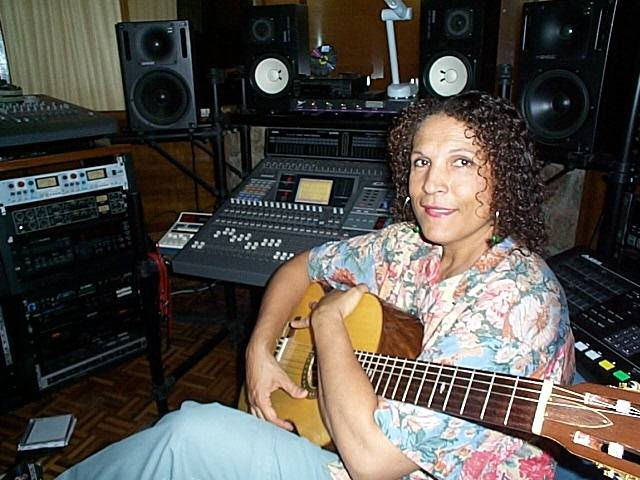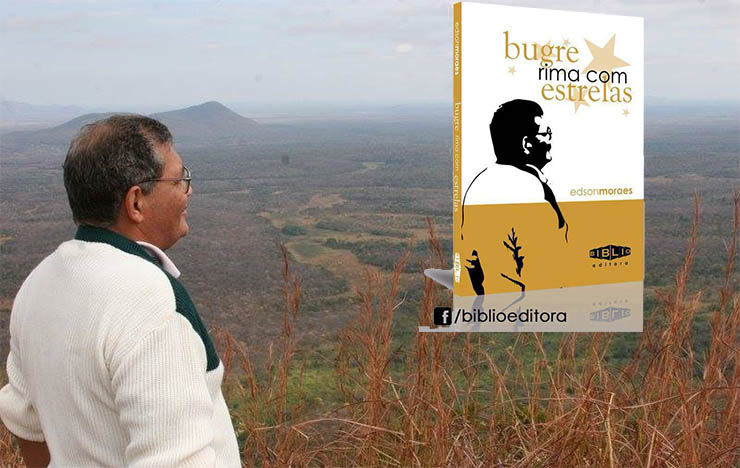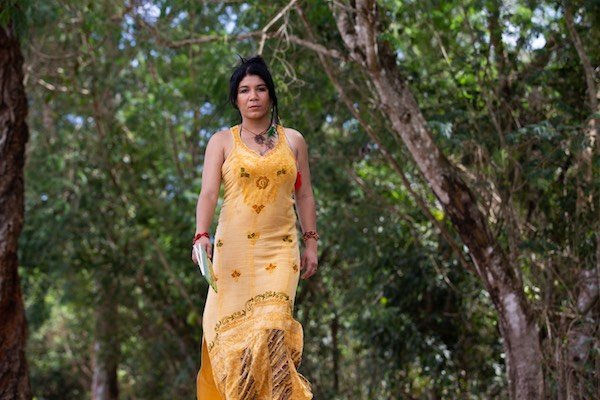October 29th: National Book Day
- Ludmila Souza Silva
- Jan 13, 2023
- 4 min read
"Reading is essential, the habit of reading is of paramount importance for educational growth, it transforms beings in the adaptation phase into beings that can change the world."
- Gleycielli Nonato, in an interview for the Citizen Voices Podcast.
As Gleycielli, an indigenous writer from the Guató tribe, said, reading is one of the tools for the formation of the individual, since it enables the construction of citizenship.

Photo: Isaias Paim Public Library, Campo Grande, Mato Grosso do Sul, Brazil
In Campo Grande, but also nationwide, literature is not encouraged and valued, making it difficult for regional writers to have their works known by the locals.
Vozes Cidadãs contacted authors from Campo Grande and indigenous people to talk about the theme and produce a list of recommendations with chronicles and poetry so that they can enjoy the works produced in the Cidade Morena.
The current president of the Brazilian Union of Writers, Sylvia Cesco, who has won several poetry contests, has a degree in Literature, Pedagogy, and Psychopedagogy, wrote
- Guavira Virou
- Woman of the Forest
- Stories of Dona Menina
- Hail Marys Full of Race
- Sinhá Rendeira

Cordelista Aurineide Alencar is a member and Fiscal Counselor at Instituto Pirâmide, besides being a Peace Ambassador (France & Suisse), Universal Culture Ambassador, benefactor of Education and Culture (CIAAE) has already published 5 books, being them:
- On the paths of cordel
- Life in Verses
- Mato Grosso do Sul on the wings of cordel
- Fisherman of songs
- Embracing cordel

She, when interviewed, commented about cordéis with propriety, since as a retired teacher, she used to apply this genre with her students:
"I see cordel as a facilitator of the skill of lecto-script. I have always defended this and applied it in the classroom, as a teacher of early years. And it can be used at any stage or in any area of knowledge, forming the students' critical sense.
Aurineide made some of her cordéis available for you to know her work, they are grouped in a Google Drive folder (click here to access).
Jaminho, a writer born in the town of Jardim, is a researcher and teacher who is passionate about Regional History, his works have elements of Mato Grosso do Sul, reviving and rethinking the idea of the State in his books. These are some of his works:
- There goes the chalana - Legends and myths of the South-Mato-Grossense border.
- Moonlit Dagger
- Roda de tereré literária
- Guaranis Say Goodbye
- Tereré without anesthesia
Mara Calvis, from Campo Grande do Sul, poet and writer of children's paradidactic books, also participated in the Podcast https://open.spotify.com/episode/1UPpW7L3EHO3pz42FArA9T?si=3f2710e7c8c64265 . Here are some of her works:
- The adventures of Ygor, the bearded fish, in the waters of Campo Grande
- Some things that make me very happy in my native Mato Grosso do Sul
- An exaggerated consumption
- Jujuba - The Traveling Seriema
- Morgana and the chalana - By the waters of the Pantanal - MS

Photo: maracalvis.com.br
Campo Grande has black talents that deserve to be recognized for the works that mark the culture and history of the state, with a focus on literature was made a search for news, books and records in the state, however it is necessary to emphasize that it was difficult to find Afro-descendant personalities, mainly in the body of members of the UBE (Brazilian Union of Writers of Mato Grosso do Sul) with search in Campo Grande, there were about 54 writers registered and very few were afro-descent, which is somewhat worrisome knowing that the percentage of the black/ brown population reaches about 56% in Brazilian territory, more than half to be sure.
Lenilde Ramos has a history with writing since 1968, when she wrote her first song: Love conquers color. Always connected with the movement against racism, she addressed the revolts of black people in the United States after the assassination of Martin Luther King. Her published works are:
- History without name - Memories of an almost twin girl (with also Italian edition, called: Storia senza nome).
- Images and Words
- Do Baú da Tia Lê - Chronicles

Professor Luiz Alexandre de Oliveira, born in the countryside of MG, with a visual impairment, graduated as a lawyer, and actively participated in the Academia Sul-mato-grossense of Letters and left a great legacy, especially in the capital. "O mundo que eu vi" is one of his writings.
Edson Moraes, a Corumba native son of Cuiabanos settled in Campo Grande since 1978, with more than 40 years dedicated to journalism, is one of the best known professionals working in Mato Grosso do Sul who decided to formally enter the world of literature, leaving a vast legacy to Campo Grande. He wrote "Bugre rima com estrelas", released in 2017.

To finish our list, we have the writer Gleycielli Nonato, already mentioned winner of the Manoel de Barros prize 2012, published: "Índia do rio - Poesias" and "Vila pequena - Causos, contos e lorotas".

Now that you know some of the city's writers, how about understanding the relationship between literature and the UN Sustainable Development Goals? This practice fits into SDG 4, Quality Education, which has as one of its goals to provide learning opportunities.
In Campo Grande, the Dr. Isaías Paim Public Library is open to welcome you, with several books at your disposal and also events that are held. Besides the library, in the same building the União Brasileira de Escritores de Mato Grosso do Sul brings authors together for events and contests.
Be sure to visit our social networks and enjoy your reading!
Translated by Louise Azambuja



Comments